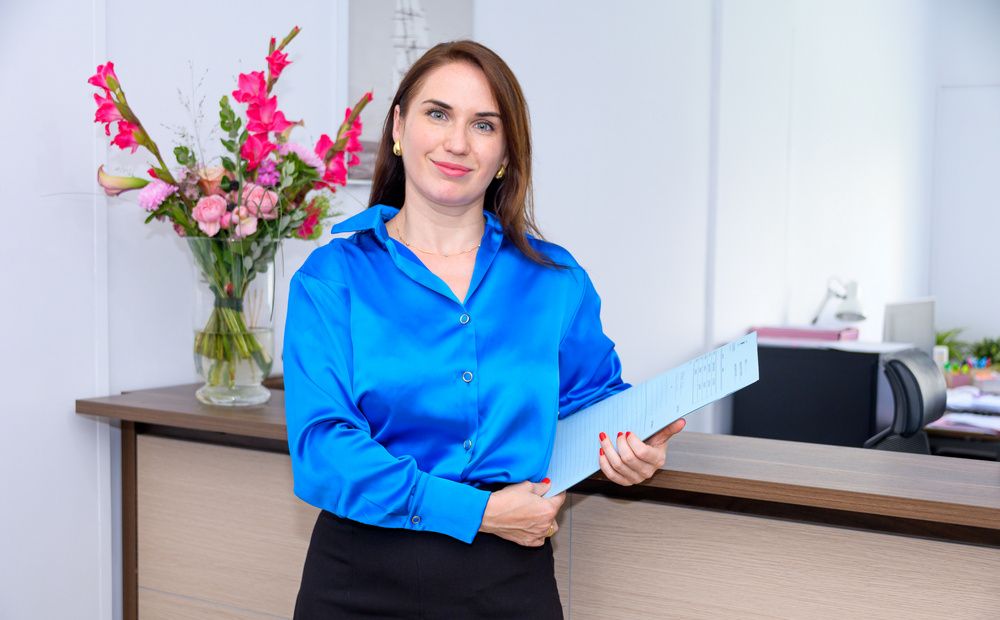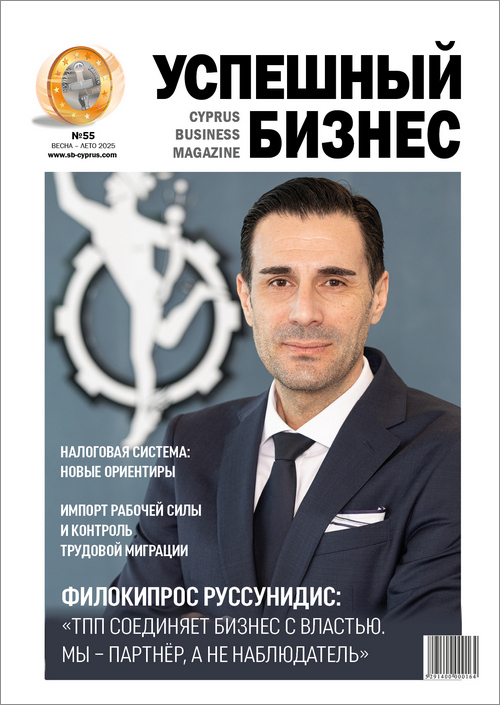Olga Papadimitri is a lawyer, entrepreneur, wife, and mother... She has successfully learned how to balance these roles and maintain equilibrium in her life. In our interview, Olga shared how she manages it all.
Olga, you’ve been in the profession for a long time. How is legal practice evolving with the emergence of various technological innovations?
I see a lot of positive changes. Thanks to technology, it's become easier to systematize work. It’s simpler to find things that may have previously slipped through the cracks.
Of course, we need to use new technologies, but we also have to verify everything. We know that, for instance, ChatGPT, when preparing important texts, can sometimes fabricate information or refer to events that never happened. And in the legal field, as you can imagine, that is unacceptable. On the other hand, it can highlight aspects a person might never have considered.
I’ve also noticed that clients are increasingly using technology. They can now submit requests to various organizations, contact banks and official institutions, draft agreements, and more on their own. Essentially, our clients are now able to handle simpler issues that they used to approach lawyers for. I’m pleased to see people’s proactivity and their ability to quickly resolve everyday tasks. It saves time and money.
We are now in a phase where humans are teaching neural networks, and neural networks are teaching humans. I see this as a mutually beneficial collaboration.
You work a lot with private clients. What are the most common issues people seek your help with in Cyprus?
There’s no definitive answer because new requests are always emerging. At one point, I thought I had seen it all. But there’s always something new that I haven’t encountered before.
If we talk about recent trends, there are a few hot topics. The first is paperwork for relocation, buying a car, or renting an apartment. In these cases, clients seek a lawyer’s help to avoid being scammed or dealing with unreliable landlords. Some may think such situations are rare, but unfortunately, many people do encounter fraud.
The second common issue is dealing with banks. Often, people moving to Cyprus find it difficult to open a bank account. There are legitimate reasons for this, but it’s still a widespread problem. There are also many other everyday issues where people need legal assistance.
What about small business owners? What requests do you typically receive from them?
There are many questions in this area too. For instance, obtaining a license to open a new business or meeting requirements and preparing documentation for things like food sales, opening shops, or children’s centers. Business owners, like private clients, also need legal help when dealing with banks.
It’s encouraging that many clients seek legal advice before starting their business. They want to understand the specifics of operating in Cyprus. For example, some industries have specific requirements for premises, employee qualifications, and certifications. These are crucial details to consider in advance because fixing them later can be much more challenging.
It’s also important to understand that foreigners cannot open businesses in all industries. Some sectors require that the company’s director be a Cypriot or EU citizen, while someone from a "third country" can only be the owner and cannot receive a salary. However, recently, there’s been more clarity around this, and now it’s even possible for someone in that situation to hire themselves in their own company, provided they comply with Cypriot law.
By the way, there’s been an important change recently concerning the spouses of highly skilled workers with work visas. Now, these spouses can work on the island, register as sole proprietors, and their salary requirements are lower than for other employees. I believe this will help people who have recently moved to Cyprus adapt and settle in more quickly.
Could you explain this in more detail? This is a topic that may interest many.
The process isn’t complicated, but it does require attention and care. The first step is to determine the field of activity and its licensing requirements. The next step is to legalize the relevant educational qualifications. Then, there’s the question of how to organize the business—whether it will be a company or sole proprietorship (SP). It’s essential to understand that the type of business structure affects taxation and who bears responsibility—the company or the individual.
Is there a maximum income threshold where someone must switch from being a sole proprietor to a company?
The need to register for VAT depends on turnover. But even a sole proprietor can do this. It’s not necessary to register as a company.
Do you meet with each client personally?
Yes, I usually hold the initial meeting with clients myself. Our firm is small, and it’s important for us to work with clients with whom we can establish mutual understanding. That’s why it’s crucial for me to meet the person and assess whether they are ready to work within the legal requirements and best practices. After that, one of our lawyers takes over. All of them are highly skilled professionals and know how to ensure the best outcome for the client. Thanks to this approach, our clients stay with us for many years.
I think this is the beauty of a small private business – when the company owner can give personal attention to each client. Do I understand correctly that with urgent matters, people can contact you at any time of day?
If it’s truly urgent, yes, it’s possible. But let’s not forget that I’m not only a lawyer but, first and foremost, a woman. I have a family, personal interests, and other commitments...
For me, the main perk is that I get to choose who I work with. You wouldn’t believe how many amazing people I’ve met recently. They’re all so different, from different parts of the world, and yet incredibly interesting, open, and creative... I love sharing my experience of life in Cyprus with them, as well as my professional knowledge. I love being helpful to them.
Have you lived in Cyprus for a long time?
Since 2007.
Did you get your law degree here?
I came here with a degree in International Law from Belarusian State University. At the same time, I was studying for my master’s in Lithuania, and here I passed the required exams to practice law.
Was it difficult?
I found studying very interesting. The challenge was finding enough time for it. I already had a family, was working full-time, and only had a few hours late at night to study.
What language did you study and take exams in here?
Of course, it was in Greek. That was another challenge, but fortunately, I’m good with languages, and I successfully passed all the exams with the first attempt.
How do you manage to balance work, family, and hobbies now?
I try to finish work on schedule and dedicate my evenings to my family or personal interests. If it weren’t for my family, I’d probably work around the clock—I’m very passionate about what I do. But my loved ones help me stop in time and make my life more interesting, warmer, and more joyful.
What types of cases do you take on with particular interest?
I enjoy cases where I can see a clear result. I’m unlikely to take on something that could drag on for years. But I especially love working on inheritance cases, particularly older ones.
Why inheritance cases in particular?
I get immense satisfaction from helping people resolve issues that have been lingering for years because they simply didn’t know where to start or how to proceed. I feel a similar sense of accomplishment when working on interesting business cases. It’s always gratifying to see someone achieve what they’ve been striving for. And for me, seeing a client’s joy in that moment is a bonus to my profession.
What other kinds of cases can you help clients with?
We have strong expertise and experience in relocation to Cyprus, business support, and many family and administrative law cases. We also handle litigation.
Let’s talk a little about you as a leader. How difficult is it to run a business like yours?
It’s both difficult and easy at the same time. On the one hand, I get immense enjoyment from what I do. On the other hand, I clearly understand that as a leader, I still have a lot to learn. I know I need to improve in personnel management. Entrepreneurial skills and management skills are different things, and I have a lot of room for growth in this area
I realize that I need to step out of day-to-day operations more often and delegate more. I’m not very good at that yet, but I’m learning.
What do you value most in the employees who work for your company?
You know, early in my entrepreneurial journey, I made some serious mistakes in hiring and working with people. But those mistakes helped me understand that relying solely on a person’s professional skills doesn’t ensure long-term success, at least not in my business. Today, I place great importance on the personal qualities of the people I work with. We have a small team, and to work well together, we need to be in sync. When we are, both our results and our clients' outcomes are the best they can be.
Olga Papadimitri is a practicing lawyer in Cyprus and the founder of a law firm O. Papadimitri LLC. She graduated from the Faculty of International Relations at Belarusian State University and completed a master's program in International and European Law at the European Humanities University in Lithuania. She moved from Belarus to Nicosia in 2007 and worked at one of the largest and most renowned law firms in Cyprus. In 2012, she founded her own firm. Today, O. Papadimitri LLC offers a wide range of services, including consultations, certification of legal documents, and translations for both individuals and legal entities.






